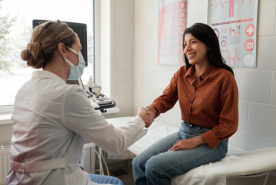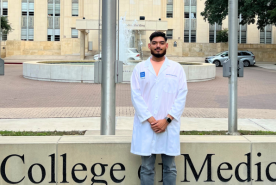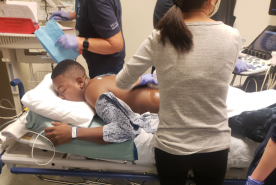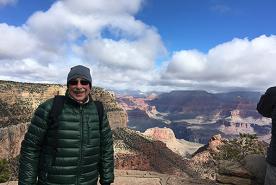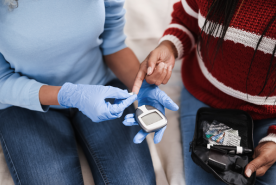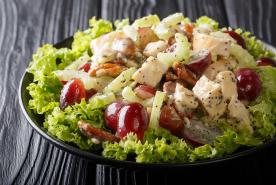What are cystine stones?
A cystine stone is a type of kidney stone. Many people think there is only one type of kidney stone. But in fact, there are different types. A kidney stone is a solid piece of material that forms in a kidney. It may stay in the kidney or travel down the urinary tract.
Cystine stones tend to reoccur and are typically larger than other kidney stones. You should talk to your healthcare provider if you get cystine stones. There are things you can do to lessen your risk of forming new stones. You may not know you have a cystine stone. It is important to have stones diagnosed to help get the right treatment for this condition.
What causes cystine stones?
Cystine stones are caused by a rare disorder called “cystinuria.” The disorder causes a natural substance called “cystine” to leak into your urine. When there is too much cystine in the urine, kidney stones can form. These stones can get stuck in the kidneys, bladder, or anywhere in the urinary tract. Most people with cystinuria have recurring stones. It is a lifelong condition that can be controlled, but not cured.
What are the symptoms of cystinuria?
Cystinuria only causes symptoms if you have a stone. Kidney stones can be as small as a grain of sand. Others can become as large as a pebble or even a golf ball. Symptoms may include:
- Pain while urinating
- Blood in the urine
- Sharp pain in the side or the back (almost always on one side)
- Pain near the groin, pelvis, or abdomen
- Nausea and vomiting
What is the treatment for cystinuria?
Treatment starts with doing things to keep stones from forming. For adults and children, this means drinking more water, reducing salt, and eating less meat. If these steps are not enough, you may also need to take special medicine to help keep stones from forming.
- Drinking more water. Drinking lots of water will lower the ability for the cystine to form stones in the urine. Ask your healthcare provider how much water you should drink each day to help keep stones from forming.
- Changing your diet. Cystine stones are less able to form in urine that is less acidic. Eating more fruits and vegetables can make the urine less acidic. Eating meat produces urine that has more acid, which can increase your risk for cystine stones.
- Reducing salt. Eating less salt can help keep cystine stones from forming. Try not to eat salty foods, including potato chips, French fries, sandwich meats, canned soups, and packaged meals.
- Medicine. Some people may also need to take prescription medicine to help keep stones from forming. Different medicines work in different ways. Some types help to keep your urine less acidic. Other types help keep cystine stones from forming by not allowing crystals to come together. Your healthcare provider can explain these different options and help you find the right medicine for you.
How do I know if my treatment is working?
Because cystine stones tend to reoccur, it is important to know your treatment is working and lowering your cystine level. A 24-hour urine collection is a way of checking cystine levels. Your healthcare provider may ask you to do a 24-hour urine collection to check your level. The results will help determine whether any adjustments to your treatment is needed.
What happens if I get a cystine stone?
he goal of treatment is to help keep stones from forming by reducing the amount of cystine in your urine. With less cystine in your urine, stones are less likely to form. It is important to work with your healthcare provider to reach this goal. Kidney stones can cause a lot of pain. You may need to take pain relievers while you wait for the stone to pass out of your body.
If a stone is very large and painful, or if it blocks the flow of urine, you may need surgery to remove it. There are a few different types of surgeries to help get rid of the stones. These include:
- Percutaneous nephrostolithotomy (or nephrolithotomy): a procedure that involves passing a special instrument through your skin and into your kidney to take out the stones or break them apart.
- Ureteroscopy: a tiny instrument is passed into the bladder, and then up the ureter (the tube that drains urine from the kidneys to the bladder), to remove the stone.
- Extracorporeal shock wave lithotripsy (ESWL): a procedure that uses shock waves to break up large stones into smaller pieces. However, this procedure does not work as well for cystine stones compared to other types of kidney stones.
Can cystinuria cause kidney failure?
Most people do not get kidney failure from cystinuria, even with recurring stones. However, without proper treatment for stones, you could experience:
- Kidney or bladder damage from a stone
- Urinary tract infections
- Kidney infections
- Blockage of the ureter (the tube that drains urine from the kidneys to the bladder)
Key Points
- Cystine stones are caused by a rare, inherited disorder called “cystinuria.”
- Cystinuria is a lifelong condition that will need to be actively managed to keep stones from forming.
- Treatment starts with doing things to keep stones from forming, such as drinking lots of water, reducing salt, and eating less meat. If these steps are not enough, certain prescription medicine may be needed to help keep stones from forming.
- Small kidney stones may pass out of the body during urination. Larger stones may require surgery.
- With the right treatment, you can help keep new stones from forming. Most people can control cystinuria by drinking lots of water, reducing salt, eating less meat, and taking medicine to keep stones from forming.
If you would like more information, please contact us.
© 2016 National Kidney Foundation. All rights reserved. This material does not constitute medical advice. It is intended for informational purposes only. Please consult a physician for specific treatment recommendations.


